Gender Pronouns and Identities in Jewish Education
Jewish schools and camps learn to embrace their LGBTQ+ participants, allowing them to express themselves and recognizing their distinct identities.
A rising sophomore at Georgetown University, Nathan plans to major in government and minor in film and media studies as well as statistics, hoping to eventually get into a career creating digital content for campaigns or covering them for the Atlanta Jewish Times and other media outlets.
Over the past decades, Jewish Atlanta has made massive strides towards integrating and accepting youth and ensuring they feel welcome and comfortable. Jewish schools and camps have taken steps to ensure those with gender identities that don’t align with the one they were given at birth are able to access the same opportunities as people who identify as the gender they were assigned at birth, otherwise known as cisgender.
While some organizations haven’t had to address gender identity yet, they tell the AJT they are prepared for the eventuality. Those who have addressed such issues say they have embraced it, trying to ensure that non-cis students and campers are treated respectfully.
Audra Kaplan, associate camp director and head of community care for Camp Ramah Darom, talked to the AJT about how camp programming attempts to make LGBTQ+ campers feel more accepted.
“For the past seven summers in our staff trainings we have incorporated LGBTQ+ awareness education, and it has changed and evolved based on what is needed over the past several years.” The training has partially focused on helping staff, including counselors, to ensure that situations don’t harm LGBTQ+ campers.
Ramah Darom has been hosting events at camp to promote inclusivity with the LGBTQ+ community, including oneg Shabbats, each session in 2019 attracting hundreds, Kaplan said.
The camp has also been working with Keshet, a Jewish LGBTQ+ organization, to ensure gender-neutral terms are used for forms and documents. “Our hope is that over the next year we will be able to put [in] more gender-neutral terms, and that they can check off male, female, or non-binary, fill in, if they have something else that want to put in.”
The focus is still on how to ensure that non-cis gender campers, those who identify by a gender other than the one they were assigned at birth, feel safe and free to express themselves as they identify. This past summer during virtual sessions there were a couple of campers who came forward saying, “they would prefer they/them pronouns, so I think we are there, people are comfortable sharing, and campers and parents are comfortable having those conversations.”
Campers may notice language around groups change, Kaplan told the AJT. “Instead of saying ‘all the girls go here, all the boys go there’ what are other ways we can identify when we need to move a group of people; thinking through more gender-neutral ways like ‘hey y’all.’”
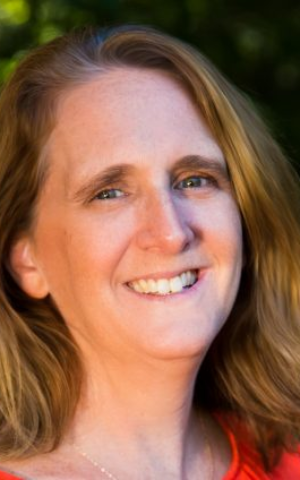
All of these efforts at Ramah Darom are part of a wider effort to be more inclusive, Kaplan said. “It is a mindset that we want to be an inclusive community, with the queer community to Jews of color, those with different disabilities. Really it is a mindset that we want our Jewish community to reflect the [wider] Jewish community.”
Other overnight camps are taking a similar approach. Camp Barney Medintz Director Jim Mittenthal told the AJT issues are addressed on a case-by-case basis. “There are families that have approached us, not just this year but in years past, that have said, ‘our son is transitioning, our daughter is transitioning, would you accept them in camp?’ And we have been very accepting, but every family is different though. Coming to us in April is different than coming to us in October.”
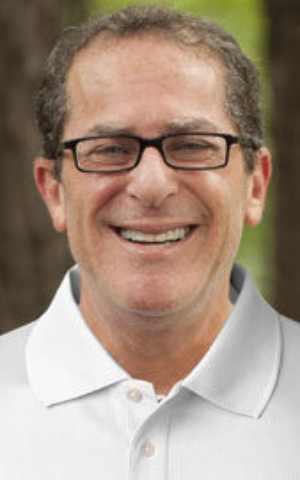
The issue of using different cabins and bathrooms can make accommodating campers difficult, especially if done late into the registration process, Mittenthal explained. “Our approach has always been to accommodate when possible, but can we accommodate everyone? I don’t think we can have a ‘yes’ across the board. My approach has always been: ‘let’s see if we can make this work,’ rather than the opposite.”
While camps have to ensure the full-time safety of non-cis gender campers, schools face a different set of issues, which tend to be focused on high school age students, according to David Abusch-Magder, The Epstein School’s head of school.
“In the field at this point, among the younger K or early childhood through eighth grade world, I have not been hearing much about non-gendered pronouns, but more about seeing themselves or having an identity or expression that is different than the gender they were assigned at birth. That said, I think at some point it will become an issue; I just haven’t heard much about it yet directly or from colleagues.”
Younger students still may be expressing themselves as a different gender than the one on their birth certificate, he admitted. “We sometimes have kids age 3, 4 or 5 being very clear and articulate that ‘I am not a boy, I am not a girl,’ but I have not heard as much about that. Even though many may act in a non-gendered way, they just aren’t as familiar with the terms.”
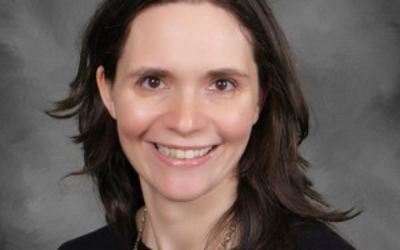
Epstein is still preparing for how to ensure students feel comfortable identifying as they want to, Abusch-Magder said. “The things that guide our approach are our values, particularly kavod, respect and b’tselem Elohim, that every person has a divine spark. And I can’t comment on individual students, but if we have students that choose to identify as different gender than what is on their birth certificate, it is something we would respect and navigate with the kid, their family and the whole community, and this would go for someone using non-gender specific pronouns,” he said. “When you are in territory that you may not have a lot of experience in, going back to your values, what animates your institution and is sort of the bedrock, that is the key piece.”
Other Atlanta-area Jewish schools are taking similar approaches, whether or not they have non-cis students.
The Atlanta Jewish Academy hasn’t had any students ask yet to be referred to by pronouns other than those they were assigned at birth, said high school counselor Dr. Pamela Mason. But the school is prepared to help students feel safe in being themselves.
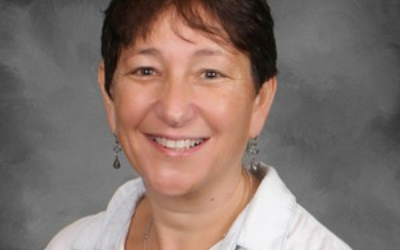
Sylvia Miller, a counselor for Early Childhood Development through eighth grade, told the AJT, “We approach everything related to our students’ needs on an as-needed basis and really under the umbrella idea of our students’ social, emotional and spiritual health, … We feel strongly if anything like that comes up, we would want to talk it through and see how we can best serve that child and make sure that child is included and embraced, as a child needs to be.”
The Weber School currently has transgender students and the school has had long-standing policies. Principal Shlaina Van Dyke said, “It was started under Sim Pearl, when he was head of school, developing conversations around gender issues and equality, and then expanding into LGBTQ+ issues [involving] both the adult and student community here, ranging from bringing in speakers from SOJOURN to educate us to when we had more specific instances of student and faculty need,” she said.
The school fully embraces the identities that students and staff choose for themselves, Van Dyke said. “Students, faculty and staff will all be honored and recognized based on their expressed gender identity. That includes names, pronouns, and is comprehensive of all things, from participation in activities to where they choose to use the restroom, so that everyone is treated with dignity and respect.”
Schools and camps allowing students to identify themselves and knowing that they will be in a safe environment to do so will help them be more true to themselves, according to SOJOURN Director Rebecca Stapel-Wax.
SOJOURN, a community organization focused largely on LGBTQ+ within the Atlanta Jewish community, is also a resource within the Atlanta Jewish community and throughout the South. It has been advocating the importance of accepting gender non-cis people for decades. Stapel-Wax told the AJT the importance of telling people your pronouns.
“Some people don’t feel comfortable doing it, they may even be trans or non-binary, but they don’t want to be the one to be the reason that people are sharing their pronouns. A couple of things that are just so easy to do is to have it in your email signature, any video platform.”
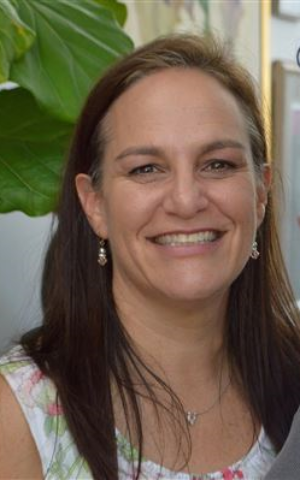
For LGBTQ+ youth, having communities that are already welcoming in this regard, that don’t make it abnormal to ask these questions, will help them feel safer, Stapel-Wax believes.
“By having them visible, people can have conversations and really build where people are respecting the person for who they are, and pronouns are a very obvious way of doing that, but it is parallel to always ask people how they want to be referred to, who they are, so you are never assuming anything, which I believe is a healthy way to getting people to interact much more deeply.”
For those who use pronouns besides those they were assigned at birth, the community has an obligation to recognize their identities, Stapel-Wax stressed. “A lot of people say it is preferred, but it is really not an option. It is part of who a person is.” The community has been making progress on these issues, as more young gender non-cis people come out, she said. “The kids are somewhat leading, and the parents are supporting them, [and] the Jewish community has recognized that one of our main tenants is that we do not harm life, and they recognize the harm in not recognizing people’s needs.”
- Nathan Posner
- LGBTQ
- Jewish schools
- Jewish Camps
- camps
- Schools
- Audra Kaplan
- Gender
- Camp Ramah Darom
- Keshet
- Jim Mittenthal
- Camp Barney Medintz
- David Abusch-Magder
- Epstein School
- atlanta jewish academy
- Pamela Mason
- Sylvia Miller
- Weber School
- Shlaina Van Dyke
- SOJOURN
- Rebecca Stapel-Wax
- Education
- Community



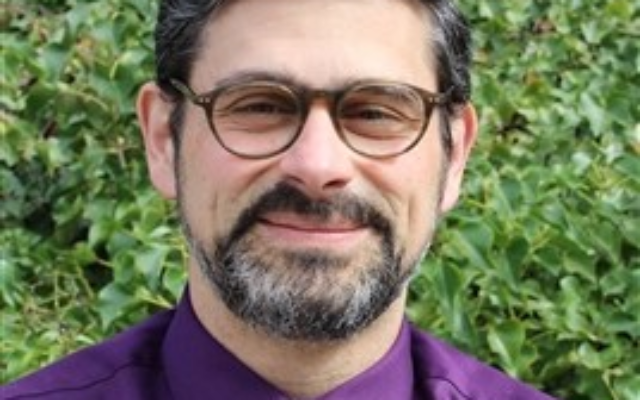
comments